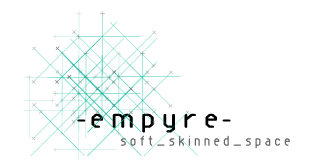
Lately, a number of institutions, based on more or less conventional models, seem to be focusing on fomenting art and culture created with digital, networked and portable devices. This is not a new phenomenon, but there seem to be different approaches, and a variety of unfoldings that shift away from the classic MediaLAB models, as the convergence of art, science and technology no longer seems to be dominant on a field nowadays diverse enough to range from social and educational perspectives to artistic experimentation of all kinds. There are mixed scenarios, on this context, in which digital culture reaches places such as China and India, while mobile and wireless networks adds layers of complexity to our connected society. At the same time open source communities grow, as well as approaches to alternative / recycled devices, and a number of organizations seem to provide air for those developments to consolidate, despite their distance from the corporate agendas. To discuss possible models and perspectives for media centers and net art organizations, representatives from institutions or independent initiatives in Brazil, England and US will share their experiences, aiming to debate differences and similarities as well as possible challenges and / or local peculiarities. How are we reacting to an epoch when, says Ned Rossiter, "there is urgent need for new institutional forms that reflect "relational" processes to challenge existing systems of governance and outmoded representational structures"? - empyre -'s guests for this month are Anne Nigten (V2, Rotterdam / Netherlands), Gabriel Menotti (Cinefalcatrua, Vitoria/ Brazil), Gisela Domschke (MediaLAB MIS, Sao Paulo / Brazil), Marc Garrett (Furtherfield, London / UK) and Sarah Cook (Eyebeam, New York / US). Later on the month, Amanda McDonald Crowley, also from Eyebeam and already an - empyre - guest on former discussions, will join the debate. To follow the discussion, subscribe to - empyre - @ https://mail.cofa.unsw.edu.au/mailman/listinfo/empyre
[CONTINUED]

